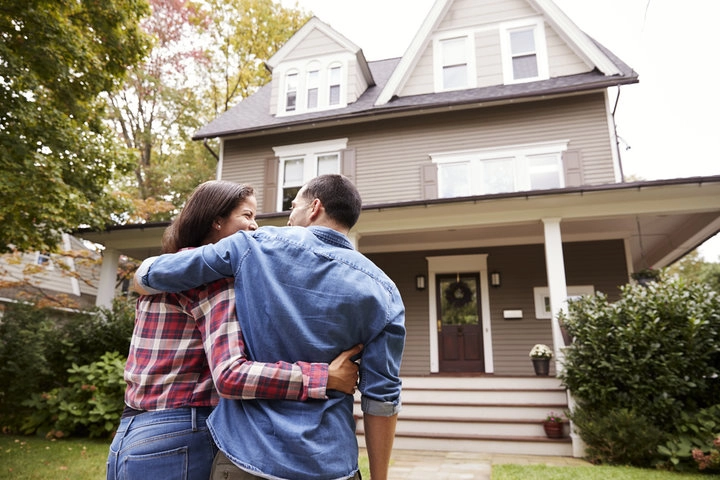Thinking about buying a home? Before you start browsing dream neighborhoods or house plans, it is important to focus on the cost of homeownership. Understanding the financial side of homeownership will set you up for success.
Down Payments
The cost of buying a home depends on location and the type of property you choose. Regardless of your budget, some costs apply to every purchase—starting with the down payment.
A down payment is a percentage of the home’s total price, typically paid upfront. First-time homebuyers may qualify for programs that require as little as 3-5% down. For example, 3% of a $300,000 home is $9,000 — still a significant amount. Home loan programs vary, so ask your lender about available options.

Traditionally, buyers are encouraged to put down 20% to avoid private mortgage insurance (PMI), which protects the lender in case of default. If your down payment is below 20%, PMI may add a few hundred dollars to your monthly mortgage payment. However, with a 20% down payment, you can avoid this extra cost.
Mortgage & Fees
Get pre-approved for a mortgage to understand what you can afford before you go house hunting. While pre-approval is not a guarantee of final loan approval, it gives you a strong estimate. A lender will review your income, assets, and credit score to determine the types of loans you qualify for, how much you can borrow, and potential interest rates.
However, just because you qualify for a certain loan amount does not mean it is the right choice. Lenders do not factor in your everyday expenses like groceries, savings, or travel. To stay financially secure, consider leaving room in your budget. As a first-time buyer, looking at homes at the lower end of your budget may be a smart move.
Real Estate Agent Fees
Many homebuyers, especially first-timers, choose to work with a real estate agent to navigate the home-buying process. Agents have market expertise, understand price trends, and can help with neighborhood selection, home features, and contract negotiations. These services come at a cost—agents typically earn a 5-6% commission on the home’s purchase price that is split between the buyer’s and seller’s agents.
Closing Costs
Before a home is officially yours, you will need to finalize the sale and sign all necessary documents—a lot of them! This is also when closing costs are due. These one-time expenses cover the cost of processing your loan and completing the sale. Closing costs typically range from 2-5% of the home’s purchase price and are typically rolled into your mortgage, but it is best to ask your lender about available payment options.
Renting vs. Buying
The costs associated with buying a home can be overwhelming, but that does not mean it is the wrong choice. It is up to you to weigh the benefits of ownership vs. renting.
Ways Renting Saves You Money
- Someone else pays property taxes.
- No paying for maintenance.
- Less cash tied up in the property.
- No risk of declining property values.
- Not tied to a geographic location.
Ways Buying a Home Saves You Money
- Deduct mortgage interest and property taxes on your taxes.
- Build equity as you pay down your mortgage.
- Potential profit if your home’s value rises and you sell.
- Access equity through a HELOC for personal loans or other needs.
- Feelings of security in owning a home.
There is no specific home buying timeline that works for everyone, so make sure you do not rush the process. Consider the costs along with the pros and cons before you make this life-changing decision.




